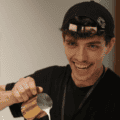Based in Helsinki, Tia Grahn has built a career that bridges science, competition, and entrepreneurship. With more than eight years in specialty coffee, she has moved from the barista bar to running her own company, MNEN Coffee, while also pursuing advanced studies in chemistry and food science. Her path has been anything but linear, yet each step reflects a deep curiosity about how coffee works and how people connect to it.
Tia’s achievements speak to that blend of practice & research: two Finnish championship titles in 2024 – the Finnish Cup Tasters Championship and the Finnish Moccamaster Championship, a widely recognised thesis on “The Impact of Cations in Brewing Water on Washed and Natural Coffee”, and contributions to publications such as Coffee People Zine. At the same time, she has created projects like her specialty coffee advent calendar, designed to make exploration accessible for everyday drinkers.
What stands out most is her drive to keep being curious about coffee. Whether preparing for the Brewers Cup, presenting her work at festivals & in publications, or investigating how coffee waste can be transformed into new products, Tia is shaping conversations that reach well beyond the cup!
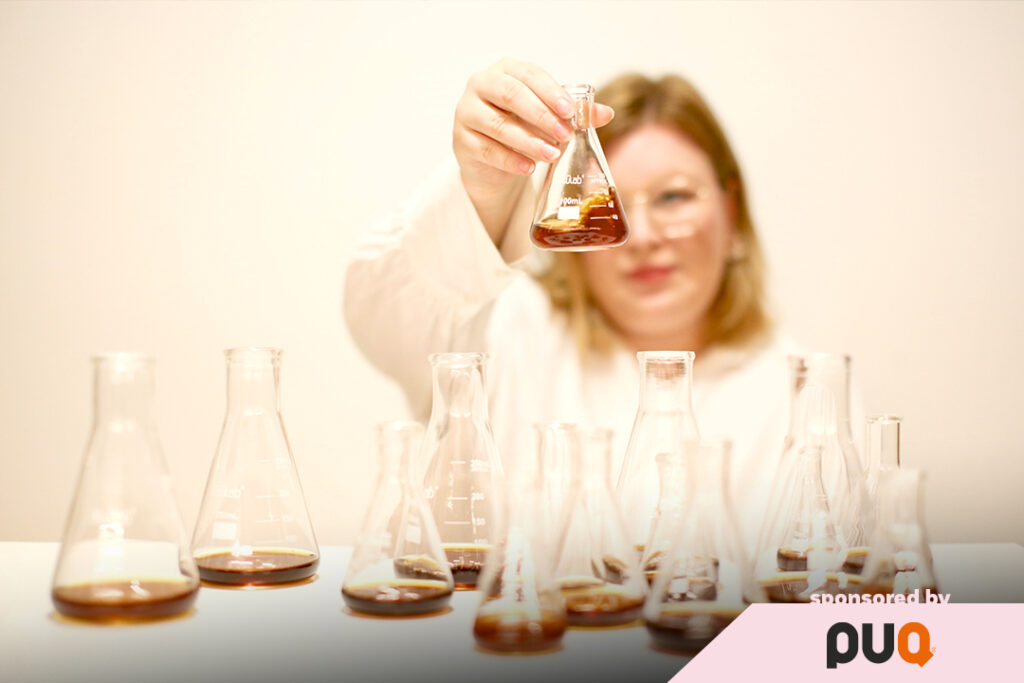
Tia, what is your first memory with coffee?
When I was about nine years old, I loved to bake. One day, I was making chocolate squares, which in Finland we call mokkapalat, and I needed to brew some coffee for the batter.
What inspired you to pursue a career in the coffee industry, and how did you get started?
I got into the coffee industry by accident. My dream was to become an architect; it was my first passion, which I discovered at the age of 6. It was my goal for 13 years until I faced the fact that my drawing skills were not at the required level. So I went into the restaurant industry and worked in several cafes and restaurants before I found specialty coffee in 2017, which was the turning point.
I felt lost in those years. Sort of wandering around jobs, I didn’t feel the fire until I tasted washed Ethiopian coffee for the first time. Before that cup of coffee, I did not like the taste of coffee and had only occasionally had a caffè latte. When I got that wow experience, my first question was ¨why does this taste good and nothing like I had before,¨ and that’s how it all started.
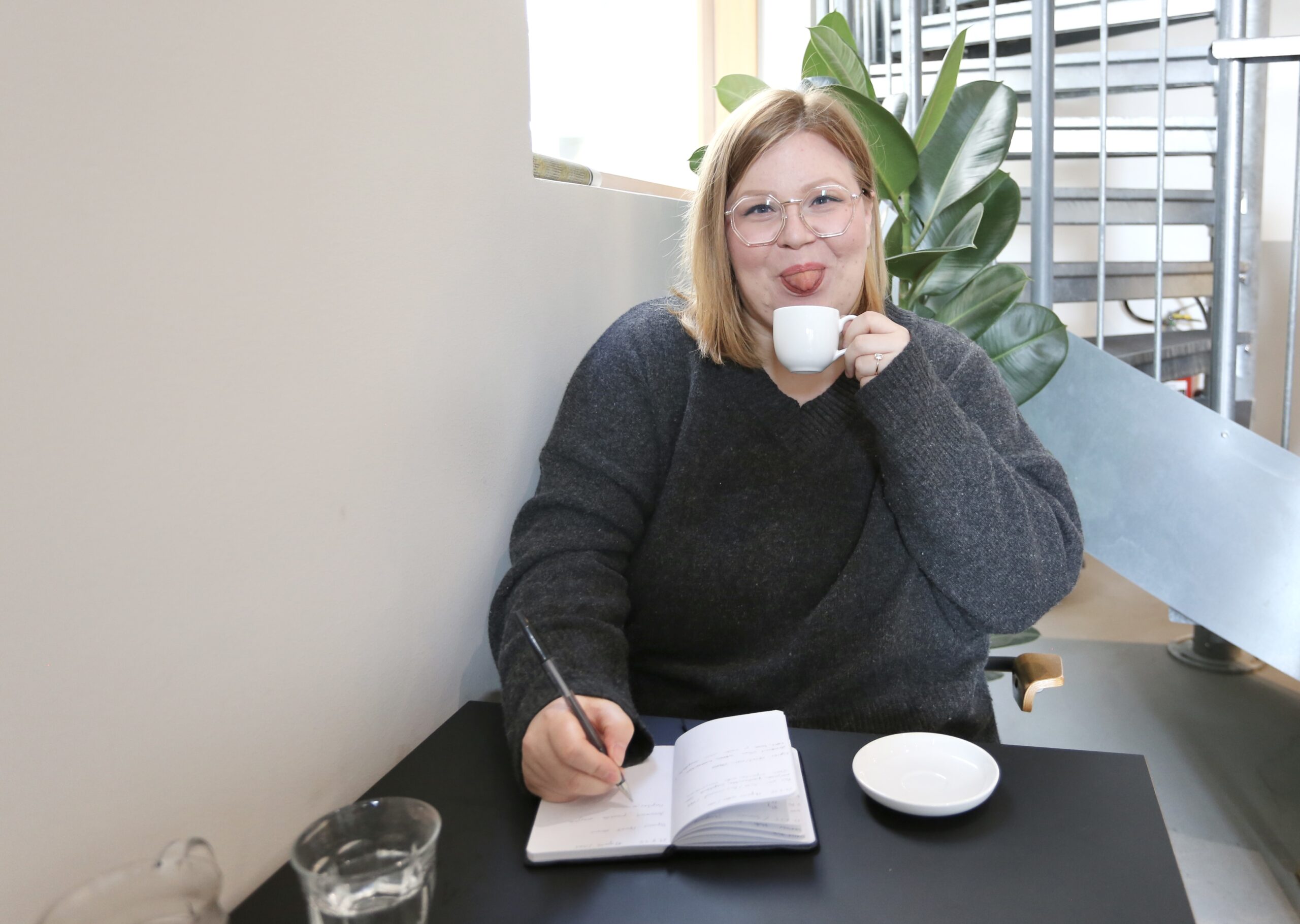
You are pursuing dual master’s degrees in Chemistry and Food Science. What specific moment or experience made you realise that coffee was the subject you wanted to dedicate your academic career to?
It actually happened the other way around. I applied to university because I wanted to study coffee! While working as a barista, I became fascinated by the science of extraction and flavours, but I quickly realised there were no clear answers to many of my questions. I started reading scientific papers and noticed that they contained gaps, which might come from a lack of understanding of the coffee industry and its practices.
Can you walk us through your coffee journey?
I usually begin telling my coffee story from the point where I started working as a barista in specialty coffee. That was when I first learned what coffee really is and when I started to enjoy it myself. I had some experience in the coffee industry before, but I don’t consider it very significant.
After a few months working as a barista, I was promoted to senior barista, which allowed me to train and mentor others in the coffee shop. My responsibilities also included regular maintenance of the equipment and quality control of coffee. I was very enthusiastic about those tasks. At the same time, I developed my coffee skills by watching James Hoffmann’s videos and listening to the Finnish podcast Cappuzine. That was when my academic curiosity began to grow, and I even got excited about the idea of designing my own coffee equipment. Altogether, these experiences motivated me to apply to study Chemical Engineering.
Early in my studies, I came across Christopher Hendon’s book Water for Coffee. While I was reading it, I decided on my thesis topic, even though it was only my first year. I wanted to study how different mineral profiles in water affect washed and natural versions of the same coffee. My research included sensory analysis, and I began to reflect on how coffee research should combine both sensory and chemical analysis. The next step would be studying analytical chemistry.
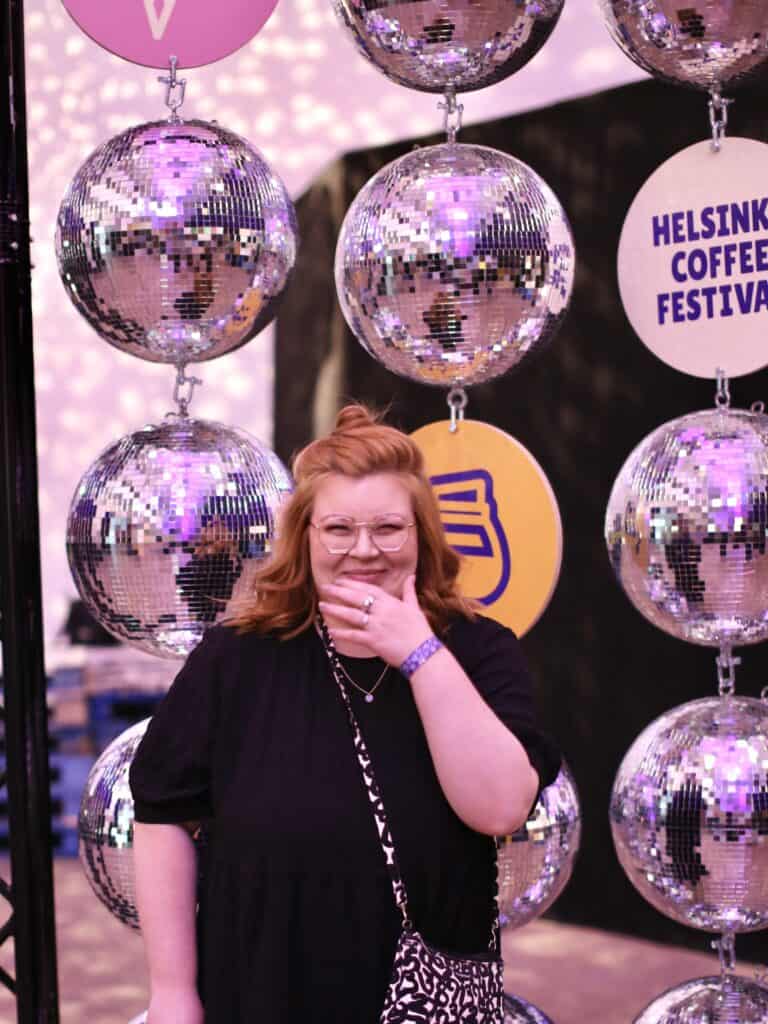
During my engineering studies, I started creating TikTok content about coffee in Finnish, focusing mainly on sustainability and explaining what specialty coffee is. The account quickly gained a lot of followers, but I also received many hateful comments. I took them quite personally, so I decided to stop using the platform after reaching over 16,000 followers.
Around the same time, I founded my own company – MNEN Coffee. My first project was to produce a coffee Advent calendar, which includes coffees from Finnish specialty coffee roasteries. The calendar allowed consumers to discover a variety of roasters, processing methods, and origins. The main idea was to offer a broad overview of specialty coffee. Since then, I have created new editions of the Advent calendar as well as smaller tasting sets based on the same concept.
Over the past two years, I have mainly been studying, but also competing. Finland has a really nice coffee community that encourages people to take part in competitions. Of course, training for competitions also helps with developing skills. This year I have been working on my Master’s thesis in chemistry related to coffee, which will be published later in the autumn.
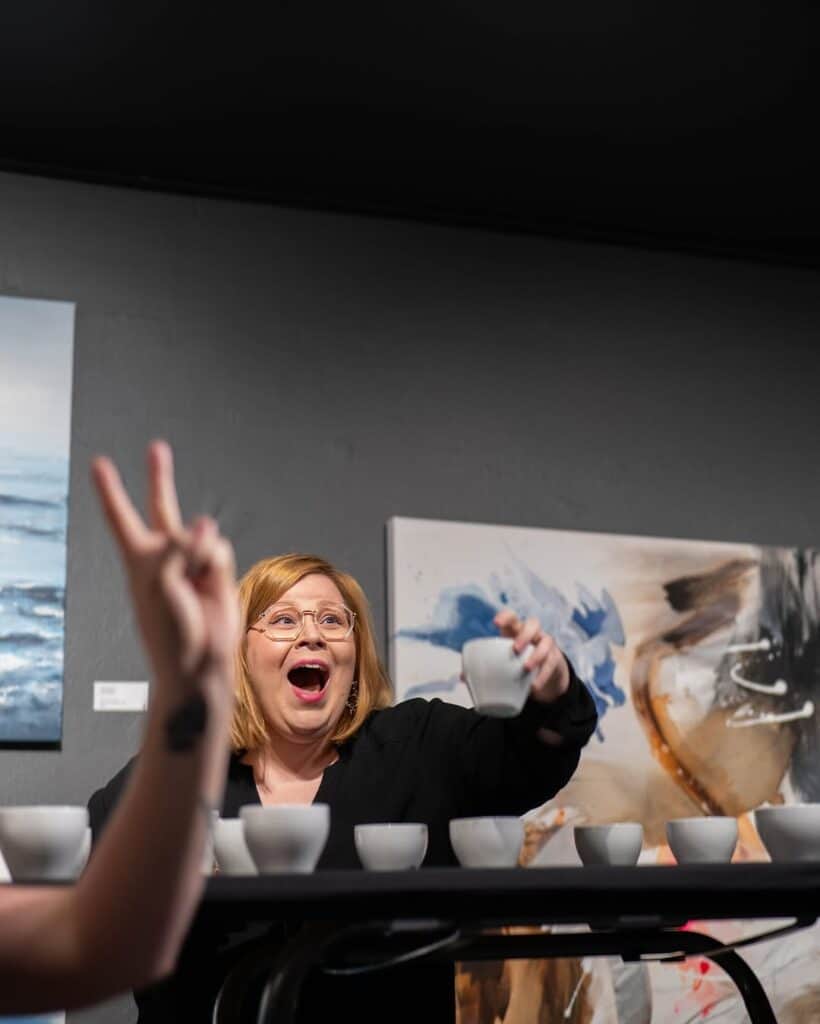
Tell us a bit about your current roles, responsibilities and projects.
I am currently preparing my presentation about coffee science, which I’ll be giving in a few weeks at Roast Fest, the main event of Helsinki Coffee Week. I’m also practising for the Finnish Brewers Cup.
You have over seven years of experience as a barista and entrepreneur. How does that hands-on, practical knowledge inform or challenge the scientific theories you’re exploring in your research?
The chemical profile of coffee is highly sensitive to even small changes. If something affects the flavour, it also affects the level of the compounds. I’ve noticed that many studies don’t consider all the variables, which means the experimental design doesn’t always reflect reality, and the conclusions can be misleading.
For example, comparing a washed coffee from India with a natural-processed coffee from Brazil doesn’t allow you to make general statements about processing methods, because geographical and varietal differences interfere with the results. I believe that a practical, hands-on understanding of coffee is essential for developing reliable analytics.
How do you stay motivated and inspired to not only research but also keep improving your coffee-making skills?
I’m motivated by the idea that perfection can never be fully achieved, but it can always be pursued. I want to keep developing my coffee skills and deepening my research expertise continuously. The more I learn, the more I realise how vast the world of coffee truly is, and that is humbling. At the same time, that very feeling of not knowing everything is what keeps me moving forward and inspires me to keep learning.
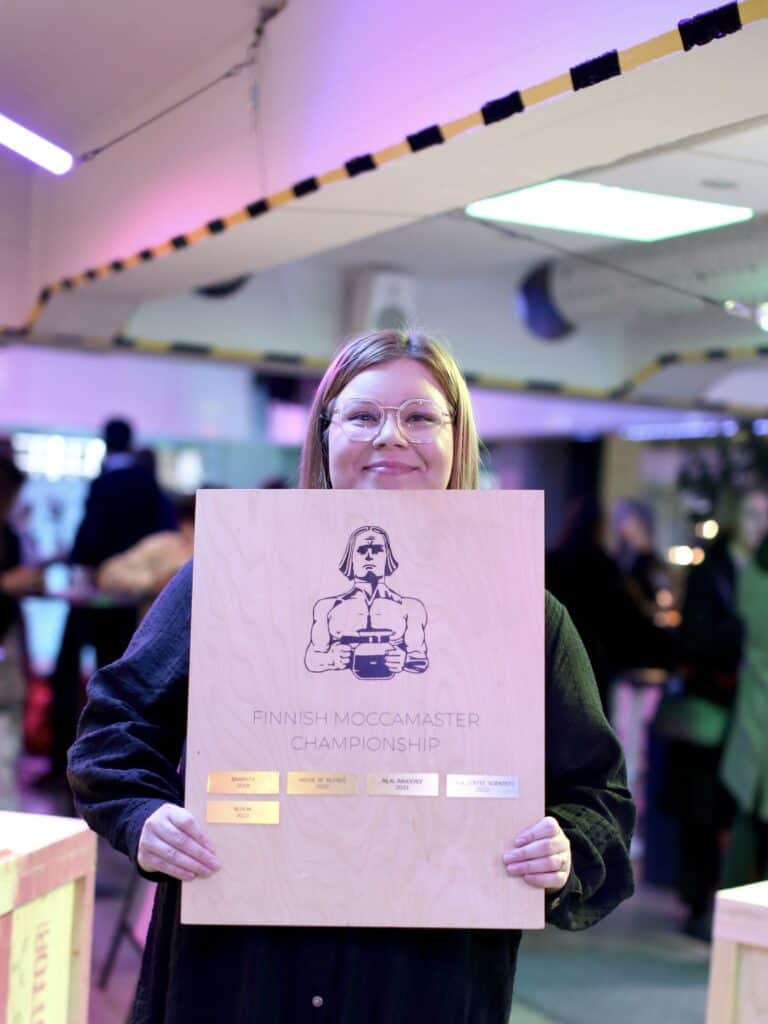
You have stated that you believe “coffee waste holds a broad market gap.” Can you elaborate on a few specific, untapped opportunities you see for coffee waste and how they could be turned into viable business models or jobs?
From a chemistry and chemical engineering perspective, every form of coffee waste contains valuable compounds. The literature already reports some findings; for example, coffee pulp contains antioxidants that can be extracted and applied in fields such as cosmetics or pharmaceuticals.
The first step would be to identify more precisely which compounds are present in each by-product stream, then consider the desired end-product and design suitable extraction and separation methods. Some interesting opportunities lie in processing by-products like coffee husk and chaff, which are rich in cellulose, hemicellulose, and lignin. These materials could be utilised, for example, in the manufacture of coffee filters or packaging, and thereby achieve what is called a closed loop in the circular economy.
If you could collaborate with anyone – a scientist, a coffee producer, a chef – to further your research and mission, who would it be and why?
This is a really tough question, as there are so many options! If I had to choose one, I would probably say Dr Veronica Belchior. I believe I would learn a lot about coffee research and sensory evaluation, as they have a multidisciplinary background and a Q-grader qualification, which I would also like to complete myself.
Their research has utilised spectroscopic analytical methods with an emphasis on chemometrics. I see chemometrics as the cornerstone of coffee analytics when dealing with such a complex food matrix. I have specialised in chromatographic methods, so I would see our expertise complementing each other, and together we could create meaningful coffee science.
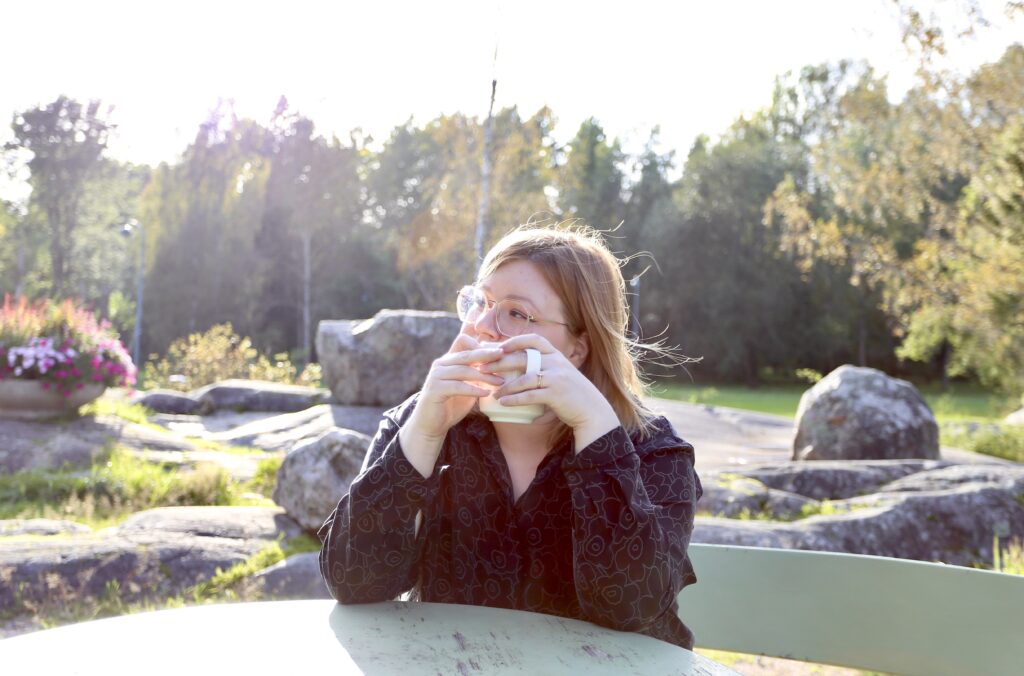
Are there any coffee trends you promote yourself and would like to see more often in other places?
I am not sure if it is a coffee trend, but I love making coffee cocktails and mocktails to create different flavour pairs! I wish to see more of them in Helsinki.
If there were one piece of knowledge about coffee you’d like everyone to know, what would that be?
Everything in coffee is well-crafted science, even if it’s not intentional.
Looking five to ten years into the future, what’s one major change you hope to see in the specialty coffee industry, and how do you envision your work contributing to that change?
One major change I hope to see is a shift toward a more sustainable coffee culture. I wish specialty coffee would receive the recognition it deserves, and that people would drink less but more responsibly produced coffee, and truly take their time to enjoy the cup. I’d also like to see coffee farmers in a stronger socio-economic position.
Through my own work, I hope to contribute by providing knowledge about the benefits of specialty coffee aspects that may not be directly tasted in the cup, but that can influence consumer behaviour and elevate the appreciation of the industry.
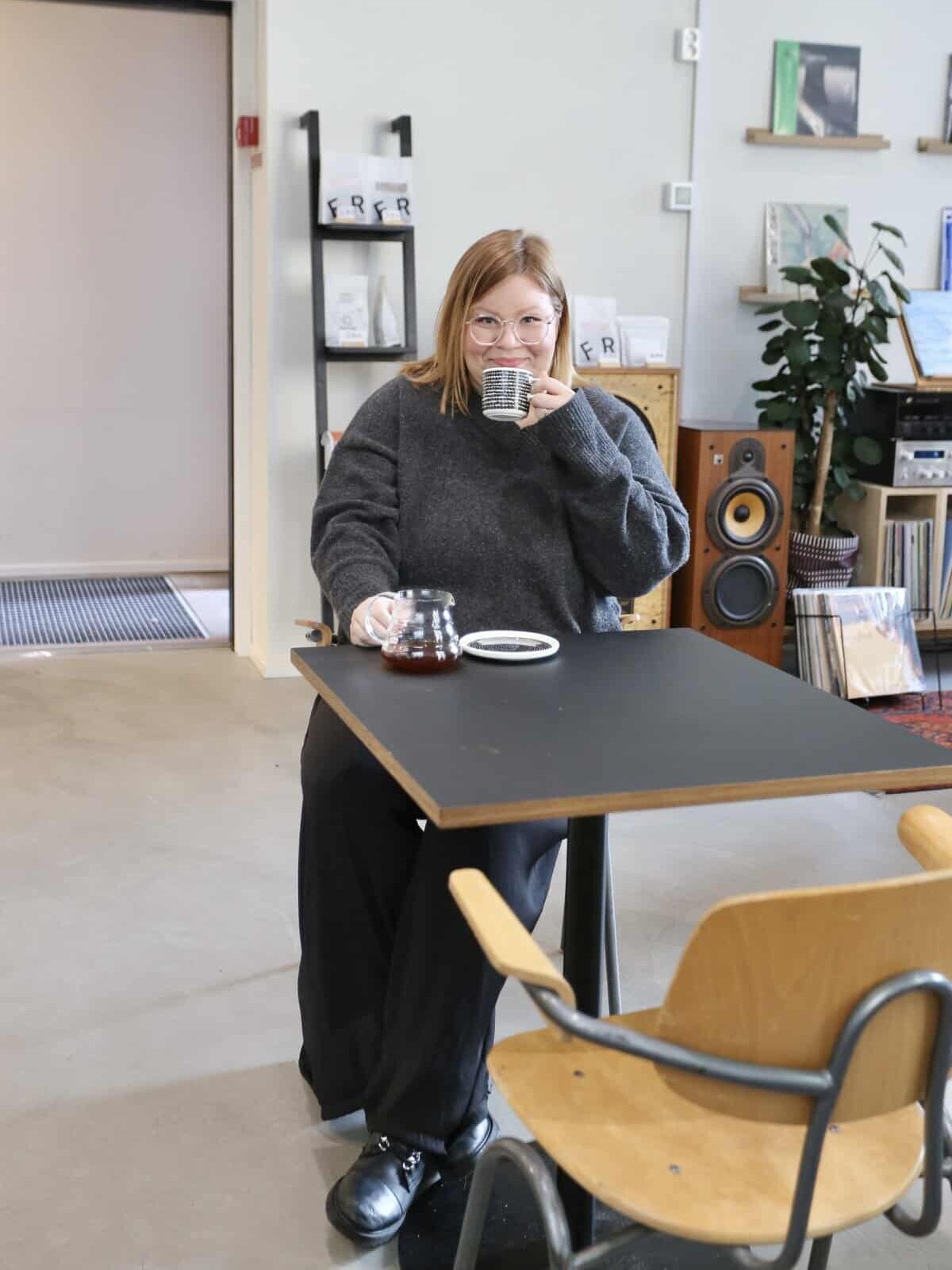
What are your passions and hobbies apart from coffee?
I’m a very visual person, and I love art and photography. Of course, you can find art in galleries and museums, but I believe people often overlook the art that surrounds us every day. I’m passionate about discovering art in many forms, like in breathtaking flavours at a restaurant, in a hand-made piece of jewellery, in unique architecture, or even in something as unexpected as a beautifully designed glass fruit.
To me, what makes it art is that someone has poured their heart and soul into creating something exceptional. My hobby, in a way, is to enjoy and be inspired by other people’s passion.
What coffee challenges are you looking forward to? Any new projects or collaborations?
I am looking forward to starting my PhD research and getting my work published! I’m also excited about exploring new collaborations in the specialty coffee community, and I hope to continue creating projects that connect science and coffee in creative ways.

Quick Fire Questions for Tia Grahn:
Filter coffee or espresso-based?
Filter coffee.
Milk coffee or black coffee?
Black.
The most underrated coffee drink?
Espresso Tonic.
The most underrated coffee brewer?
Clever dripper.
How do you make coffee at home?
Hand brew.
No.1 café in Europe that every coffee geek should visit?
18 grams, Helsinki
Favourite city outside your own for a coffee tour?
Vienna. The city has great coffee spots all over, and trams make it easy to go between them.
